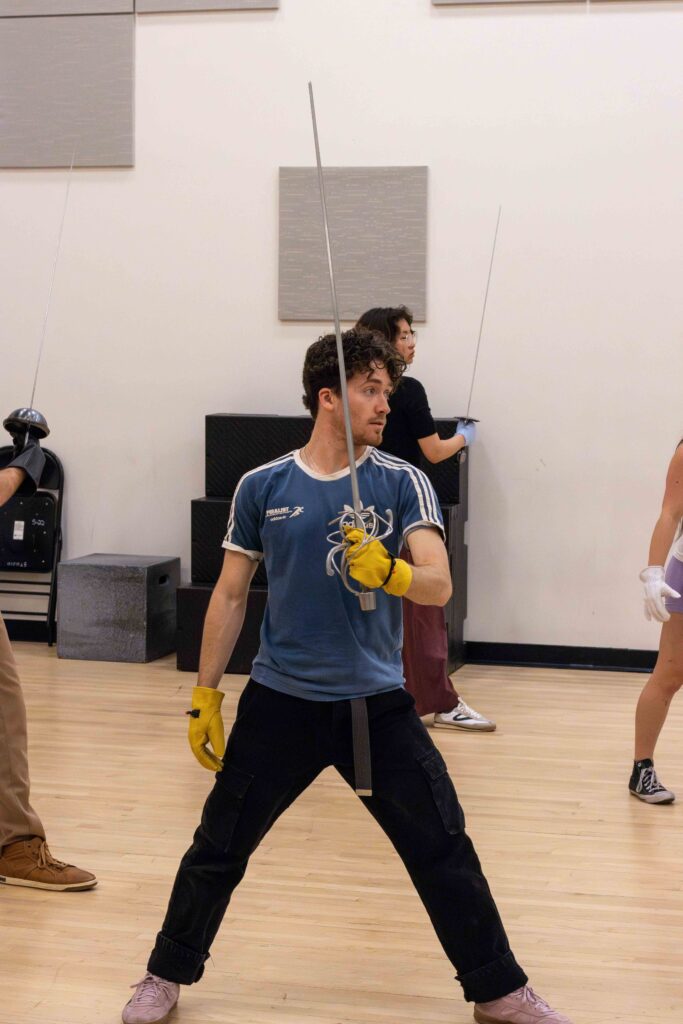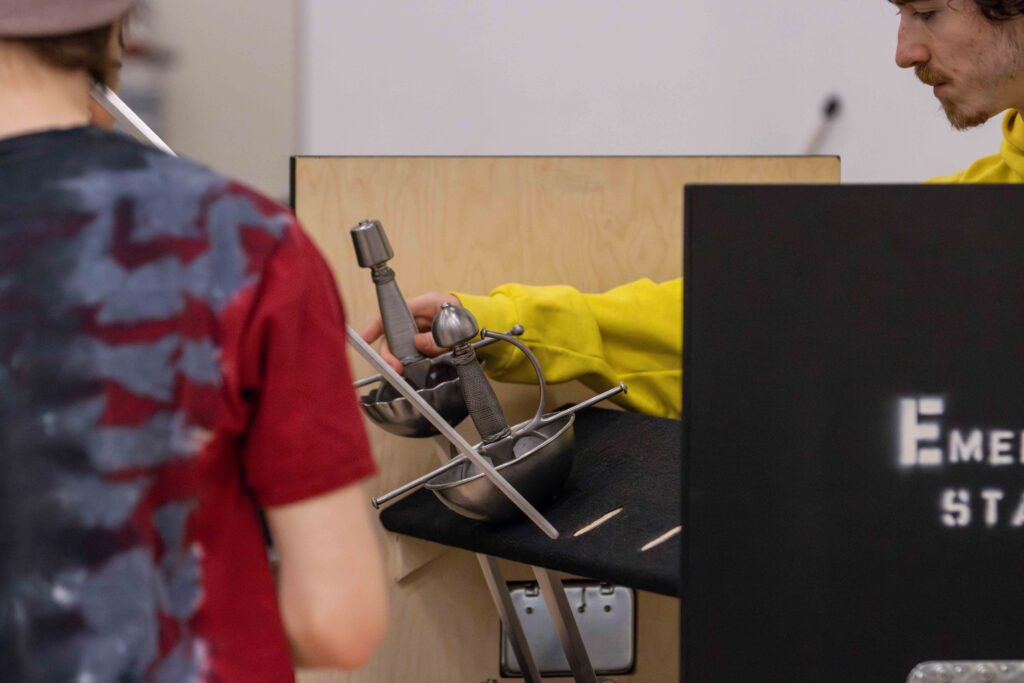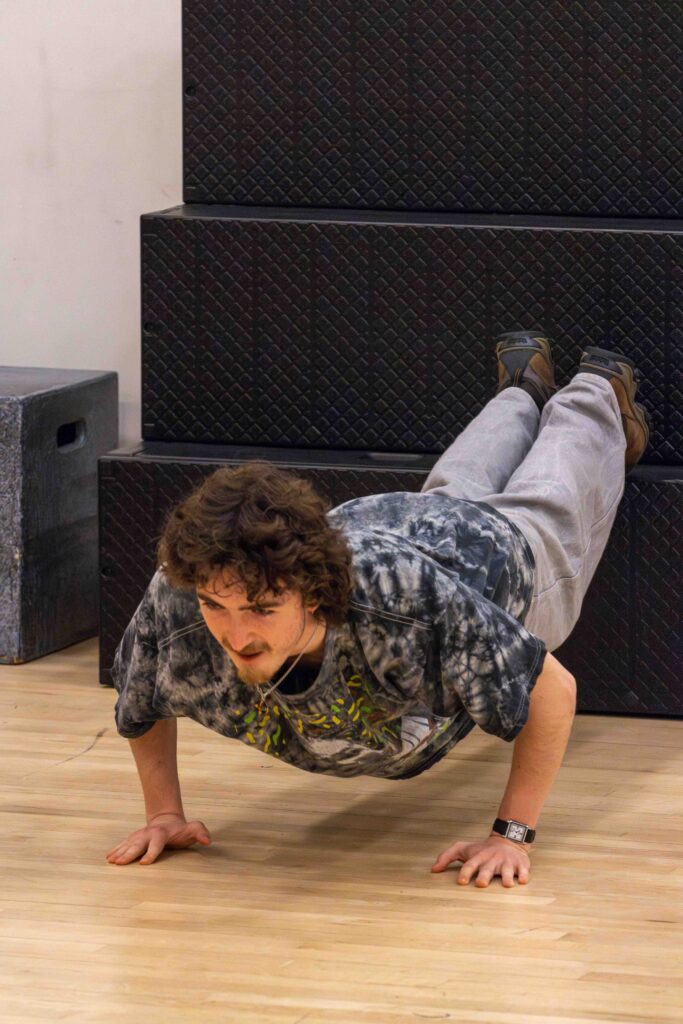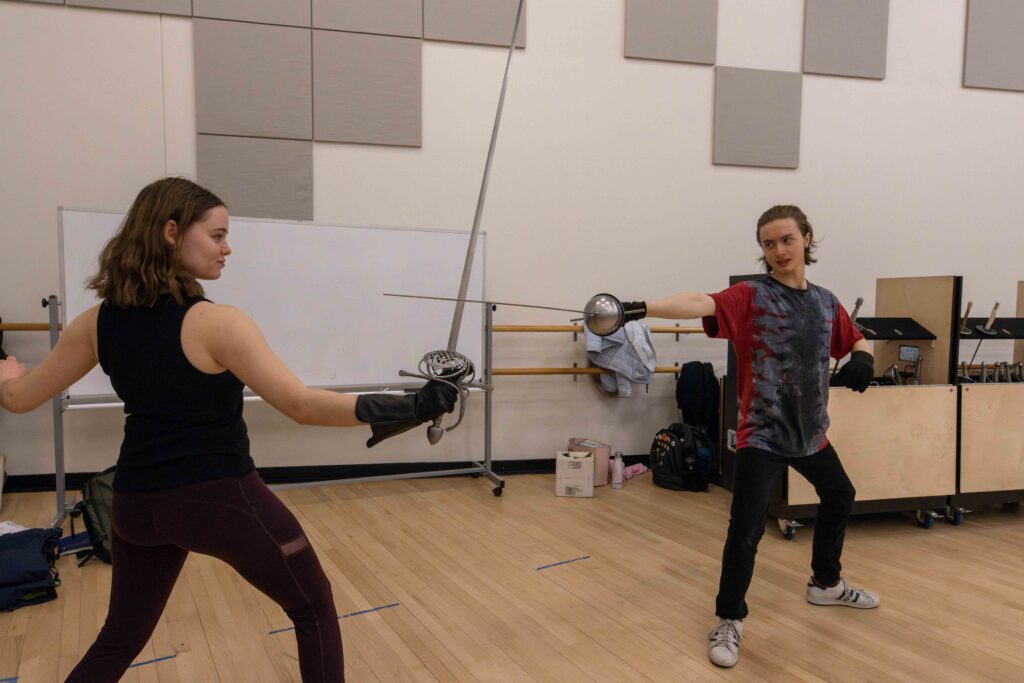En Garde! Never A Dull Movement In Stage Combat Classes
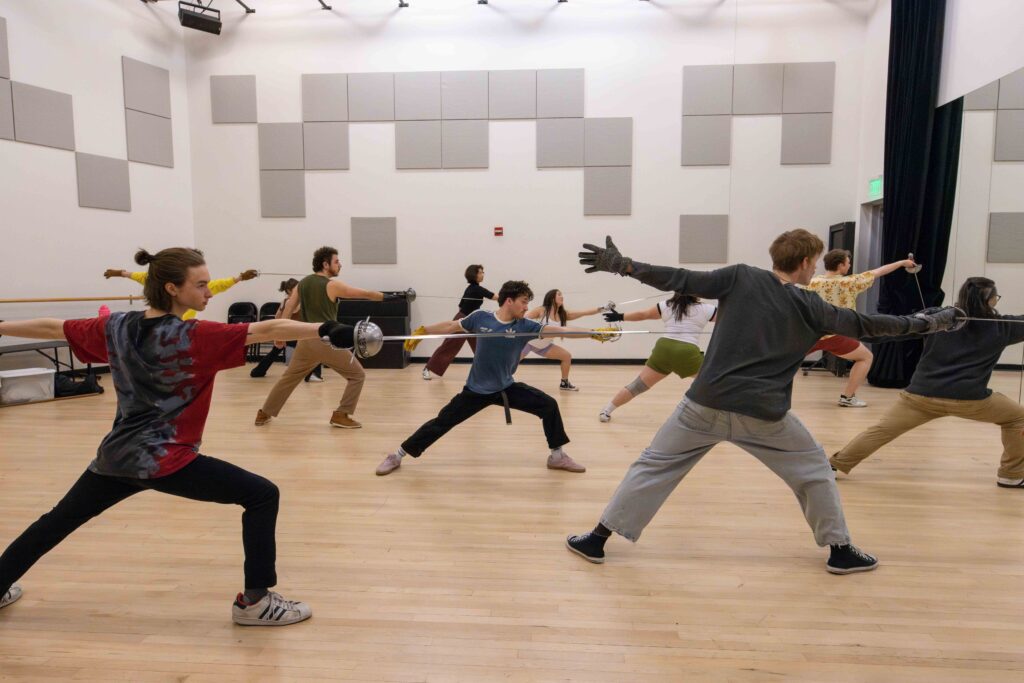
On early weekday mornings this semester, Emerson’s Paramount Center was alive with the sounds of pianos, musical theatre ballads, monologues – and the occasional clashing of 16th-century weaponry from Studio 7.
In Senior Artist-in-Residence Ted Hewlett’s Stage Combat classes, students learned to perform the illusion of violence through classical material like Romeo and Juliet. During the spring semester, there were two sections of the class–one as an elective for Performing Arts students, and the other as a required studio for junior Acting majors.
While learning stage combat, students use aluminum weapons such as daggers and rapiers. They learn the history of how weapons were used in real conflict, and translate it to acting and movement on stage.
Hewlett says there’s “something visceral and exciting” about the human body in conflict. He believes stage combat can help supplement actor training because it’s “outwardly focused” and dependent on scene partners.
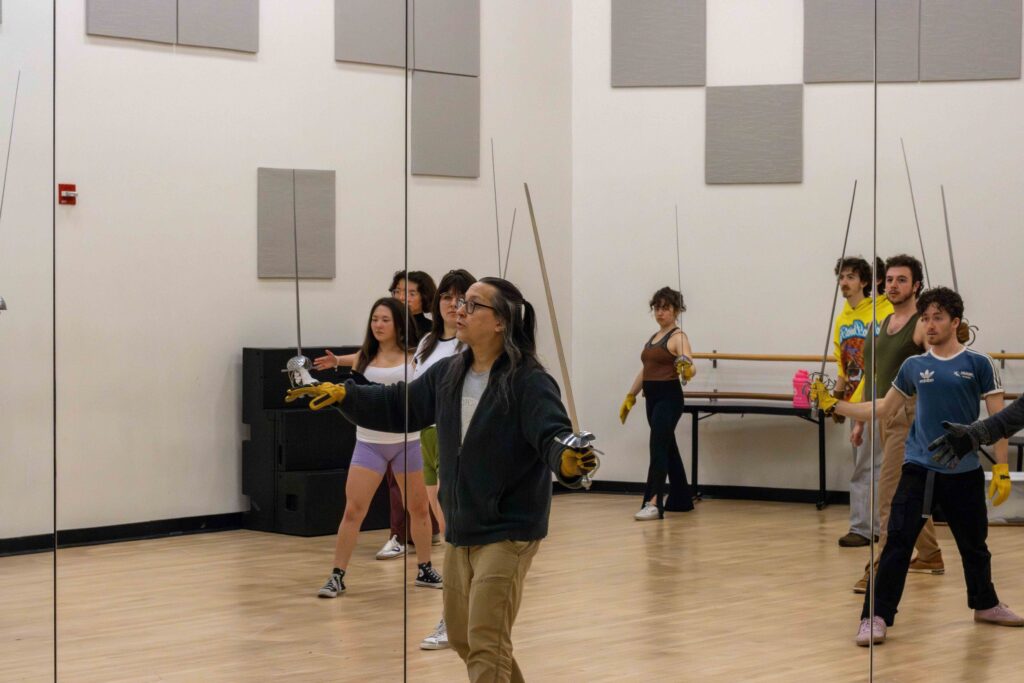
Sara Kelley ’25 is part of Hewlett’s BFA Acting Studio and said she loves the class.
“I think swordplay is a skill that is utilized a lot in acting, but I think the base that we can get from it is intimacy, consent, and working with other people,” Kelley said. “Being able to set boundaries and knowing that sometimes things are going to be uncomfortable, but there’s a difference between being unsafe and being uncomfortable.”
Theatre Education major Carter Beaudette ‘25 took the class because of his love for combat.
“All the things I love have fights, and one day I want to be a part of those things,” Beaudette said. “I also have martial arts experience. So it’s kind of a blend of my two favorite things with art, storytelling, and conflict in that kind of capacity.”
After having Hewlett as his Movement professor as a freshman, Theatre and Performance major Spencer Daniel ‘24 wanted to take another one of his classes and learn more about stage combat.
Photos by Rian Nelson ’25
“It’s easy to just get excited about the technique and forget about the safety component,” Daniel said. “It’s about the balance of knowing where you’re hitting and keeping a safe distance while also trying to have a dynamic scene.”
Students said Hewlett places emphasis on safety, and much of class is devoted to teaching the actors how to protect themselves and their scene partners.
“I don’t feel like it’s super comfortable to pull the sword at your chest like ‘I kill you now’, but he teaches us to kind of push past that,” said Loey Jones-Perpich ’24. “And to grow OK with being uncomfortable. He’s really knowledgeable, and I feel like his philosophy as a whole is about safety.”
Hewlett said that, outside of theatre hubs like New York City, Chicago, and Los Angeles, the only places to get stage combat training are in BFA and MFA programs.
“I would say for anyone interested in doing stage combat or …theatre, it’s useful to have stage combat experience, especially if you’re doing Shakespeare,” said Sage Beasley ‘24,. “But then on top of that, it’s just a lot of fun. I think the main thing that attracted me to signing up for this class was like, yeah, we get to swing around some swords. Who can resist that?”
Categories
